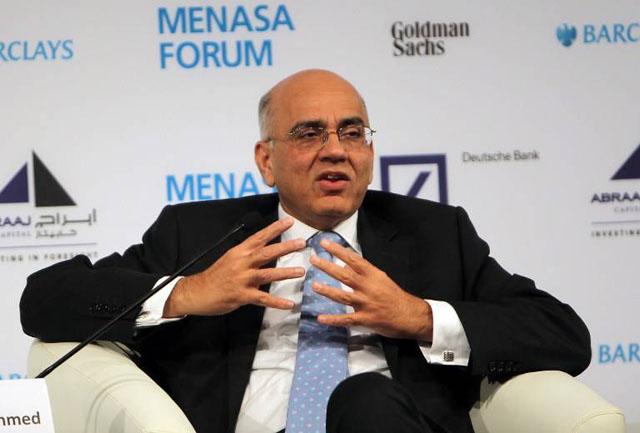You are here
‘Indebtedness will burden future generation of Jordanians’
By Petra - Aug 09,2014 - Last updated at Aug 09,2014

AMMAN — Jordan cannot continue its policy of subsidies that benefit the rich more than the poor, a senior International Monetary Fund (IMF) official told the Jordan News Agency in telephone interview on Saturday.
"The government should reduce allocations of subsidies and reform those related to energy so as to ease pressure on government finances,” Masood Ahmed, director of the IMF’s Middle East and Central Asia Department, said.
“Money saved via the subsidy reform can be used to increase investments to achieve growth," he added.
According to Ahmed, future generations of Jordanians will have to shoulder the burden of indebtedness arising from the budget deficit as a result of government subsidies, especially in the area of energy.
Noting that spending on subsidies reduces chances for setting up development projects and infrastructure, he indicated that some money saved, by amending the subsidies’ mechanisms and channelling them away from the rich, can be used to create work opportunities sought by young Arab people who aspire to find jobs.
The IMF official advised the government to be "very careful" when reducing subsidies and stressed the importance of having the proper methods in place to protect the poor.
"This process should be gradual as one cannot change a 30- year-old policy in three months. The process should be a step at a time," Ahmed said.
He urged that a strong awareness campaign should accompany the subsidy reform process to acquaint the masses with the reasons behind such decisions and to rally public support for the drive .
“If you do not explain to the people what you are trying to do and why, then it would be difficult for the public to accept the reform requirements, particularly in light of the situation in the region,” the IMF official cautioned.
Ahmed noted that the Kingdom had suffered from two external "traumas"; the first caused by the Syrian crisis and the influx of more than one million Syrian refugees and the second resulted from the cut in the Egyptian gas supply, which prompted the country to buy fuel derivatives at high costs to generate electricity.
However, the IMF official said the government had realised the tough price of these "traumas" and the need to reduce expenses and amend the budget, a situation he said each country can do on its own without the fund's help.
Ahmed added that measures to alleviate the impact of the situation can be implemented in cooperation with the IMF in order to benefit from its technical expertise in this area coupled with financial aid.
He indicated that the "coming step in Jordan will be stabilising the economy in the face of the difficult external traumas and then we will see what could be done to increase growth rates".
Regarding the impact of the situation in Iraq on Jordan's mega-projects, especially the oil pipeline the two countries have agreed to implement, Ahmed described the current events in Iraq as "tragic" that will surely affect the Jordanian economy.
He said Iraq is one of the most important exporting markets for the Kingdom and the situation now will negatively affect trade and investors' trust in the region.
Yet, the official stressed the IMF's commitment to continue helping Jordan next year to deal with challenges brought by neighbouring countries or international traumas, such as the increase in energy prices.
"We are always ready to help Jordan because Jordan is a highly appreciated member," Ahmed concluded.
Related Articles
The Jordanian delegation to the International Monetary Fund (IMF) meetings in Washington have managed to reduce the remaining country reviews to three.
Managing public debt tops the challenges facing Jordan, International Monetary Fund (IMF) Mission chief to Jordan Kristina Kostial said Tuesday.
Prime Minister Abdullah Ensour on Monday received Masood Ahmed, director of the International Monetary Fund’s (IMF) Middle East and Central Asia Department.











